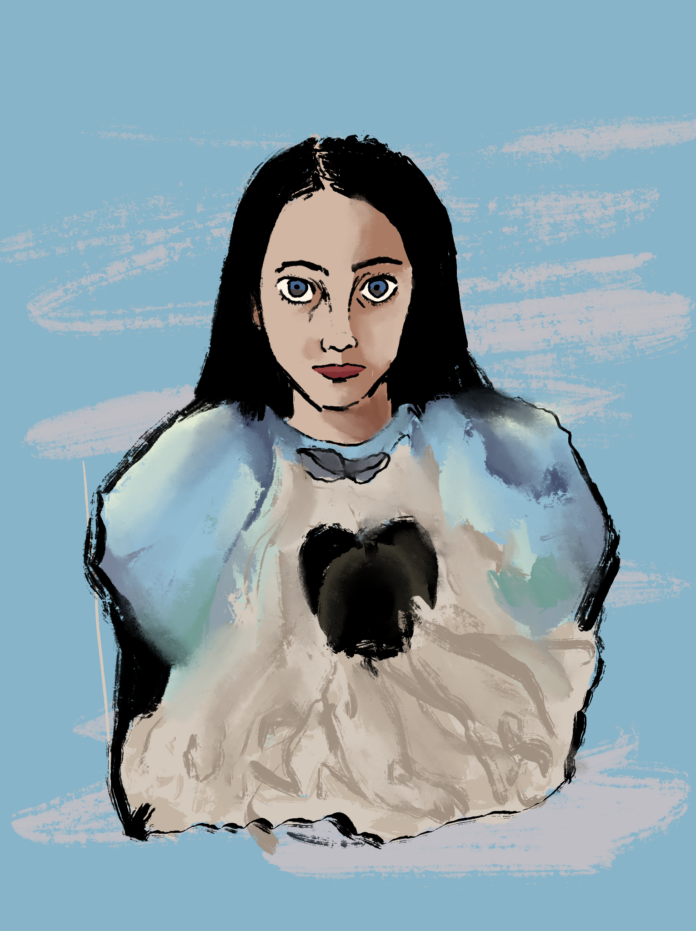Nora Yoon ’27 is a Chemistry major. They enjoy writing poetry for the campus literary magazine, The Gallery and reading whatever books have a good vibe to them. They also like sitting by large bodies of water, drinking lots of coffee and overthinking movies, songs and things in general. Contact them at giyoon@wm.edu.
The views expressed in this article are the author’s own.
Hello all! Welcome back to your favorite book review column with a fresh new title. Some of you may be wondering: wait, wasn’t someone else writing this? The answer is no. I was writing it, but I simply am using a different name because I contain multitudes. Now back to the book at hand:
“Poor Things”! First introduced to me by visionary freak director Yorgos Lanthimos’ 2023 film adaptation, the narrative follows a woman born immediately into adulthood without conceptions of Victorian social norms (including but not limited to: gender roles, religion, capitalism, world hunger, sexual repression and politeness) traversing the world, unabashed and unafraid of the raw experiences that fill the movie. Burning through men, trying on such professions as prostitute and surgeon, Bella Baxter philosophizes, experiments and revises her own conclusions over and over again in a vibrant sequence of intense drama and humor. I will save the details for the movie, which I encourage you to watch. Now for the book, which I hopefully will convince you to read:
Overall, I think it is a bizarre and fascinating book. The structure of the novel mimics a historical investigation into the life of Bella Baxter (later known as Dr. Victoria McCandles) presented to the reader from various perspectives and sources. The ‘editor’ gives historical background and details; Archibald McCandles, the main author of the novel’s manuscript, describes meeting his wife and their life together; and, finally, Bella herself details her journeys with a voice that gradually matures as her knowledge of the world expands. These overlapping and sometimes contradictory narratives pull you in — who is telling the most accurate version of this story, and why are the others lying? Did Godwin Baxter, Bella’s father, desire her sexually or not? Was Archibald McCandles, Bella’s husband, a man of natural intelligence or a dimwit? And was Bella actually the product of an infant’s brain in the body of a grown woman, or was Archibald’s description the product of an overactive imagination?
While I’ll allow the novel to reveal these secrets in its own time, I enjoyed how philosophy, literature and history coincide and interact throughout the novel. Bella’s ideas about the world formulate and change as more significant experiences and ideas become part of the equation for her, making for a very strange and dynamic reading experience. Bella goes from writing in childish sentences to iambic pentameter to the embarrassed, pretentious voice of a self-conscious professional begging the audience to accept her revised version of events. The novel, revolving around Bella and her worldview, never deviates meaningfully from the axioms that “only bad religions depend on mysteries” and that “truth, beauty, and goodness … are the commonest, most obvious, most essential facts of life, like sunlight, air, and bread.” That Bella never views any form of suffering as proof that the world itself is evil (and instead sees societal evils like natural diseases, which can be cured) makes for an earnest and curious exploration of nihilistic, cynical theories about humanity juxtaposed with unbridled optimism about how the world can be improved.
This optimistic outlook and rejection of mystery gives the novel some of its more poignant moments. Bella’s denial of her origins and whitewashing of her father’s motivations for creating her (along with the rest of her ridiculously pious and idealized depictions of him) and the ultimate incomprehensibility of war, hierarchy and shame give the epilogue a more authentic note than if it had concluded with Bella being perfectly happy, correct about everything. She eventually adopts a worldview that she might’ve mocked in the beginning, but the grief of losing two sons and her unfettered desire to fix things shunts her into a fixation on ensuring children are loved enough. She urges parents to cuddle their children into adulthood and expose them to erotic behavior in a slightly unhinged pamphlet titled “A Loving Economy — A Mother’s Recipe for the End of All National and Class Warfare.” But again, even with such an absurd title motivated by obvious naivety, Bella describing how her “two youngest sons … let their beautiful bodies be mangled and crushed into mud” reminds us that she is, at heart, innocent and desperate to improve the world. In the epilogue, she has the frantic thought that instead of accompanying her husband in his last hours on his deathbed, “[she] could have done more good at other bed-sides.” That she immediately follows this up with “Never mind. I may want company during my own last days, so am glad I did not refuse it to him” speaks to the eccentricity of the mind that the story springs from, the lens through which Alasdair Gray’s novel looks at humanity.
It’s hard to say exactly why I feel this book is important; it’s just so intriguing and stimulating. It encourages you to question and judge and conclude, and then make fun of your own conclusions. But the tone is never cruel in depicting incredible folly, and instead it is somehow gentle and kind. Every person in the novel is described as a ‘poor thing,’ hence its title. Discovering the depth of the characters’ intelligence, stupidity and emotional composition engenders a real affection and a feeling that each of them is just a poor thing trying to figure out their way in the world.

